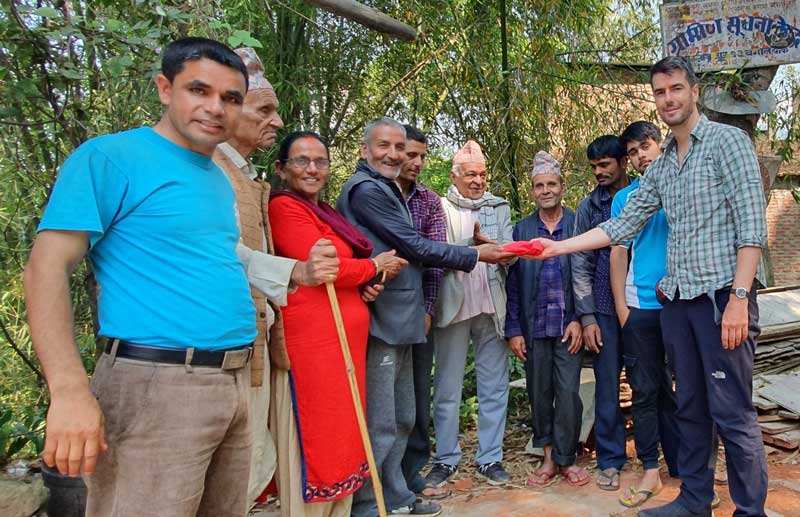Community health in Syangja
Description
Helping to solve a local health issue by building a communal latrine and wash facility.
Project details
- Location : Putalibazar, Syangja District (GPS: 28.071381, 83.822717)
- Population : 1,200
- Projects : Public toilet & wash facility
- Dates : April - June 2019
- Category : Health, Infrastructure,
According to a 2014 World Health Organisation (WHO) report, almost 40% of the population in Nepal do not have access to adequate sanitation facilities. This means that serious diseases such as dysentery, cholera and typhoid are a constant danger.
More broadly, the lack of effective waste disposal or sewerage systems can contaminate ecosystems and contribute to the spread of disease. WHO and UNICEF estimate that diarrhoeal diseases cause the deaths of thousands of children under five years old every year, and around 10% of children are away from school on any given day due to gastrointestinal illness caused by drinking contaminated water.
In 2018, we contacted our friends at the Pragati Women’s Cooperative and asked if there was a pressing problem in the local community where we could work together to help find a solution. They were able to identify a local health issue and a need for a communal latrine and wash facility.
Given the importance of community health, we accepted their proposal and initiated a project to install a public toilet located at a junction between the village and the main highway that runs nearby. This junction is used daily by local people, school children and visitors who drive through the area.
We were able to work with members of the Women’s Cooperative, local community leaders, and our Australian partners Xtreme Adventures who helped with fundraising and provided six volunteers to help construct the facility.
The aim of the project was simple – provide the convenience of a public toilet for members of the community who were away from their home during the day, and reduce preventable diseases in the area.
There was a secondary effect of this project. Because it was located near the main highway that runs through the District, it was a rest stop for travellers. Requests for a small donation have been helping to maintain the toilets, and local shops have benefited from an increase in the sale of snack foods and light meals bringing income to the community. This has ensured the buy-in of local businesses who are taking responsibility for the maintenance of the facility.
We installed a four-cubicle toilet made of reinforced concrete and stone with a 2,000L water tank and wash basins with taps.






